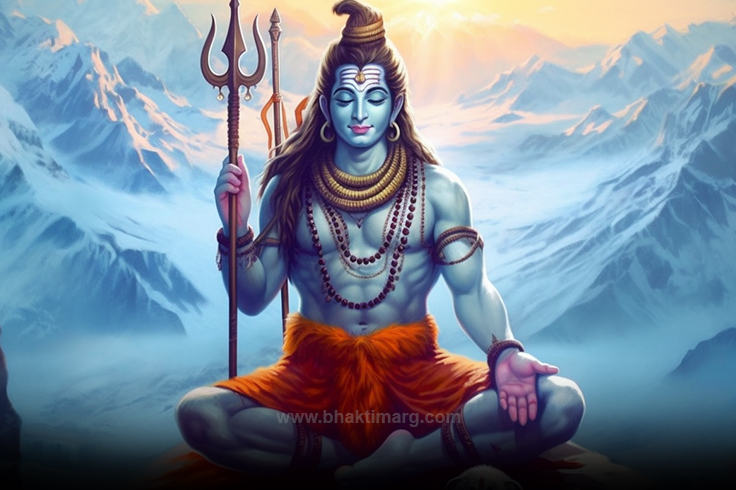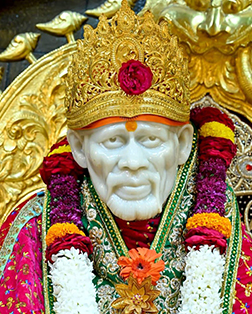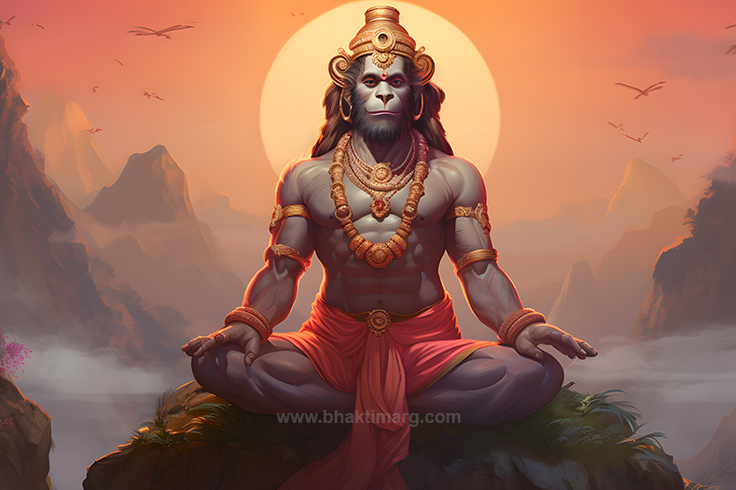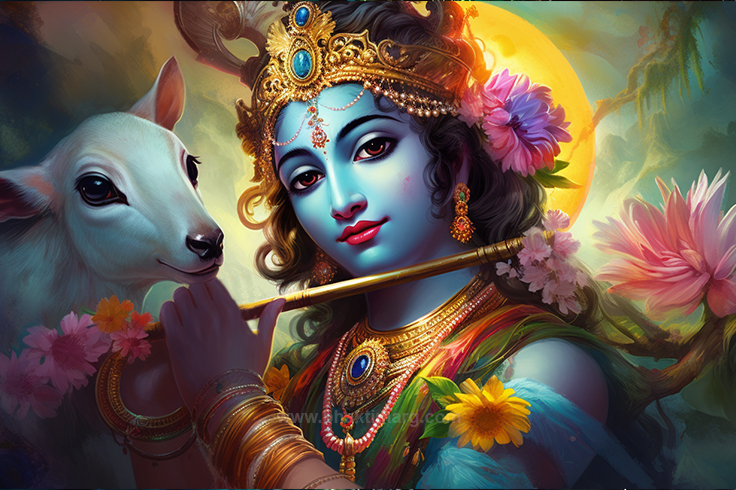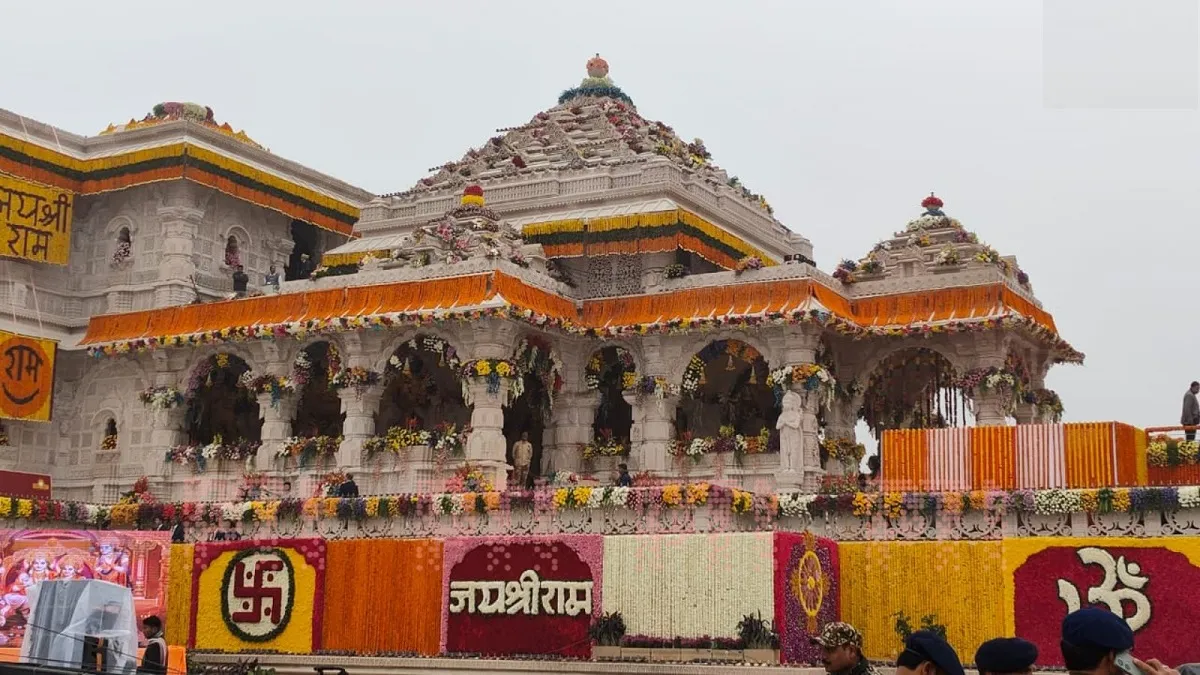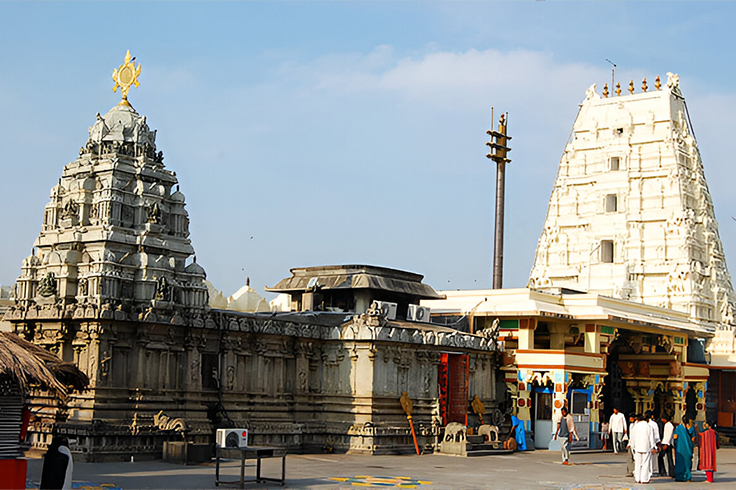
A Beginner’s Guide to Hindu Mantras: Chanting for Peace and Wellbeing
Hinduism or Sanatan Dharma is a major religion that believes in Polytheism and encompasses the concepts of Dharm, Arth, Kama, and Moksha in their teachings. On close inspection, one would understand that the knowledge in Hinduism is passed to Shruti and Smriti including various rituals, teachings, and promoting Karma. Hindu chants and mantras have a separate existence and significance in Sanatana Dharma, as words and sounds are said to have a vibration that affects living beings at a certain frequency.
The Hindu Mantras in Sanskrit are ancient sacred words or phrases chanted for spiritual and psychological elevation and it is a significant part of Hindu tradition. These mantras are revered for promoting peace, well-being, and a deeper connection to the divine. In this blog, we will explore the origins of Hindu mantras, their benefits, how to chant them, and some specific mantras you can begin with.
The Origins of Hindu Chants and Mantras
Hindu mantras can be traced back to the ancient Vedic texts composed between 1500 and 500 BCE. These texts, written in Sanskrit, contain many hymns, prayers, and liturgical formulas used in various ceremonies and rites. Within spiritual Hindu chants, Mantra, Shlokas, and Stotra each have significance.
The Mantras are sacred syllables or phrases believed to have spiritual power; and are derived from the Sanskrit words “man” (mind) and “tra” (instrument), they are tools for focusing the mind and invoking divine energies. For instance, the most revered mantra for meditation is ‘Om Namah Shivay’ has the primordial sound OM.
The Slokas are verses from scriptures written in classical Sanskrit meters, they convey moral, philosophical, or devotional teachings, the notable sources include the Bhagavad Gita and Ramayana. Stotras are hymns of praise and adoration, dedicated to various deities having poetic compositions praising gods and goddesses, seeking their blessings and protection. For instance, the Powerful Hindu Mantra “Vishnu Sahasranama,” or the Hindu Goddess Mantra “Devi Mahatmyam”
Together, mantras, stotras, and shlokas form a rich tapestry of Hindu devotional practice, enhancing spiritual growth, mental discipline, and connection with the divine.

The Benefits of Chanting Mantras
Reciting mantras is more than just a spiritual practice; it has numerous psychological and physiological benefits such as,
- The repetitive nature of chanting helps quiet the mind, allowing for greater concentration and mental clarity
- Mantras promote relaxation by triggering the relaxation response and reducing stress and anxiety levels, especially Mantras for meditation can elevate mood and foster a sense of peace and contentment
- Mantras are believed to enhance spiritual growth, connecting the practitioner to a higher state of consciousness and the divine
- There are Hindu mantras for good sleep which if repetitively chanted can positively impact overall health, including better sleep, lower blood pressure, and enhanced immune function
Hinduism features a plethora of mantras dedicated to various deities, each with unique benefits and significance. Here are details about some powerful Hindu Mantras,
- As known, the monkey god, Shri Hanuman symbolizes strength, devotion, and perseverance thus practicing Hanumanji Mantra would invoke Hanuman’s blessings for courage, protection, and success; most popular would include, Hanuman Chalisa, and the short mantra “Om Hanumate Namah“. Chanting it regularly helps overcome fears and obstacles, instilling a sense of determination and focus
- In Hinduism, there are numerous goddesses each representing various aspects of divinity, such as power, wealth, knowledge, and compassion, the most revered Hindu Goddess mantra are “Om Dum Durgaye Namah” dedicated to the protector avatar of the mother universe, and “Om Shreem Mahalakshmiyei Namah” chanted to attract abundance, fortune, and spiritual and material well-being, as it is dedicated to goddess of wealth
- There are even Hindu mantras for good sleep, the ones which are with calm and peaceful denotation such as “Om“; it is the primordial sound representing the universe’s creation, preservation, and dissolution cycles. Listening to “Om” aligns the practitioner with cosmic vibrations, promoting tranquility, calming one mind, and spiritual awakening. Another profound meditation mantra is the “Gayatri Mantra” a prayer that seeks enlightenment and wisdom, invoking the divine light of the sun
- Another powerful Hindu Mantra is the “Hare Krishna” mantra it is a highly revered Shri Krishna Mantra practiced by Viashnavas, chanting this mantra, known as the Maha Mantra, purifies the mind and soul, fostering a deep connection with Krishna and enhances spiritual consciousness
- Lord Ganesha, the elephant-headed god, is the remover of obstacles and the deity of beginnings, a common lord Ganesh mantra is “Om Gam Ganapataye Namah”, this mantra is chanted to seek Ganesha’s blessings for wisdom, prosperity, and success in endeavors. It is particularly popular before starting new ventures or projects
Each mantra has its specific context and purpose, enriching Hindu devotional practices. Regular recitation with faith and concentration can lead to spiritual growth, mental peace, and divine blessings, making these mantras powerful tools for personal transformation and connection with the divine.

How to Hindu Chants and Mantras are Practised
- Choose a calm and quiet place where you won’t be disturbed, this helps in focus better on the mantra and sit in a comfortable position, such as cross-legged on the floor or a chair with your feet flat, keep your spine straight and your hands resting on your knees
- Before you begin, to chant the mantra for meditation set a clear intention for your chanting, this could be for peace, healing, wisdom, or any personal aspiration
- Many chanting sessions start with the sound “Om,” which is considered the universal sound of creation and is believed to connect the chanter to the universe and is considered the powerful Hindu mantra
- Ensure correct pronunciation and maintain a steady rhythm, chant slowly and deliberately, allowing each syllable to resonate
- Focus on the sound and vibration of the mantra, letting go of other thoughts, feel the mantra’s vibrations throughout your body
- Start with a few minutes and gradually increase the duration as you become more comfortable with the practice
Reciting Hindu chants and mantras is a powerful practice that can significantly enhance peace and well-being. By incorporating these sacred sounds into your daily routine, you can cultivate a deeper sense of calm, clarity, and spiritual connection. Remember, the key to effective chanting is consistency and sincerity. Whether you are seeking to reduce stress, enhance your spiritual journey, or simply find a moment of peace in your busy day, Hindu mantras in Sanskrit offer a timeless and profound tool for personal growth and well-being.





